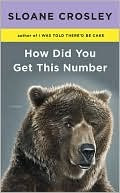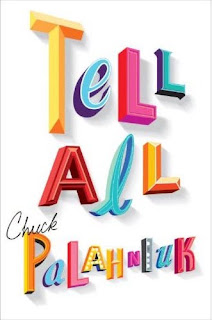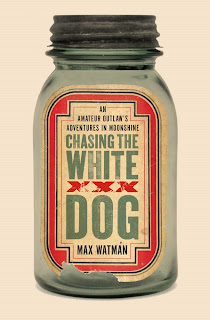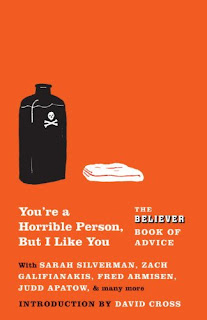
There are a lot of other low-star reviews for this book from people who say they aren’t into dogs, and that seems a little unfair. You shouldn’t get more than a couple pages in before you realize this is a dog-centric book and accept it. I don’t really care about dogs, to be honest. I don’t spend a lot of time in Petsmart, nor do I raise fighting dogs with names like “Sagat,” “M.Bison” and “Chun Li.” My personal affection for dogs lies somewhere in between beating them in a warehouse and commenting on how much they’re like people, I guess. I don’t wish them any harm, but on the other hand I don’t have one in my house and think it’s funny to dress them in bumblebee costumes when the opportunity arises.
This book also has low reviews based on the fact that people don’t like car racing. In fact, I read one where the person was disappointed that the book wasn’t about running, like racing 5K’s and shit. Look, if you pick up a book and it’s about driving, don’t give it a bad review because you want it to be a about a footrace. I didn’t give a crappy review to Jane Eyre because I wanted it to be about hot babes who get drunk and head out to the clubs. I gave it a crappy review because I thought it sucked, but it sucked in its own right, not because it wasn’t an entirely different book.
Also, it’s unfair because the book isn’t disguising itself as something else. Look at the cover. A picture of a dog and the word “racing” are right there! And the first paragraph mentions both the fact that the narrator is a dog and that the best thing he’s ever seen is the 1993 Grand Prix, which he also points out is an automobile race.
If you read, say, Pride and Prejudice and Zombies, you could be pissed off that it doesn’t contain nearly enough zombie action, or that the title is really the funniest part, or that it was way more Jane Austen than George Romero. That makes sense. You were led to believe the book was going to be one thing, but then it turned out to be another. But you wouldn’t go see Toy Story 3 and complain because you didn’t think there was enough full-frontal nudity. Nothing led you to expect it, and if you’re looking for nudity you are in the completely wrong movie, which is your own fault. The Art of Racing in the Rain is honest and upfront about what it is, so readers are not in for a surprise.
The whole point of that was to tell you this: I read the entire book mostly out of book club obligation, but I want to review it knowing that I’m not someone who should be reading it in the first place. So keeping in mind that I don’t care about race cars, dogs, dogs being run over by race cars or giant dogs eating race cars, here we go: The good thing about this book is that it clips along. The plot moves fast, and the pacing works well with the story and the doggy perspective. You can read it in a day, which I consider a plus. Screw War and Peace. Get an editor. The racing parts were interesting even as someone who didn’t go in with any knowledge or passion for racing. They aren’t overwhelming, and you learn a little something about it without getting so in-depth that it distracts from the story as a whole. Hell, I’ve never been in a fistfight, but that doesn’t disqualify me from reading Fight Club.
Okay, here’s the bad part: Way too much time convincing me that the dog really could tell this story. The dog knows things that dogs shouldn’t really know. For example, in the opening of a chapter the dog explains that Seattle had a long winter and high-pollen spring, which means that pharmaceutical companies must be doing gangbusters. Why a dog would care about that is beyond me, but I also don’t really care how he found out. In other words, if I can accept Why, I can accept How. The author goes to some stretchy lengths to make me believe that a dog can tell this story, but he should just assume that once I get past page 10 I’m on board, and at that point he should let it go. It’s a lesson that could be learned from great comic books. Take Spider-Man, for example. Spider-Man comics spend a lot of time showing him do spider stuff, but the good ones don’t waste a lot of time explaining How he does it. The movie showed a half-second clip of little spines coming out of his finger, and then we knew he could climb stuff. End of story. He didn’t have to keep reminding us or explain that they spines go through his gloves or whatever. We don’t really care about that, so let’s get on with the story. For Art of Racing in the Rain, I felt like the author didn’t believe that people would buy in to his concept, which is fair because it’s far-fetched (dog pun alert), but he should have just done a Ripley and dropped it, letting the reader decide to Believe it or Not.
Overall, as a guy who doesn’t give a damn about any of the surface contents, the book was pretty good. It moved along, kept me interested, and the ending was completely satisfying. If you’re a dog person, this is a good one to check out. Stein nails some dog behaviors, and he gives some speculative perspective on some of the stranger things dogs do, like tearing up stuffed animals or killing woodland creatures. Give it a shot, read a chapter. It’ll take 5 minutes, and then you can decide from there.














